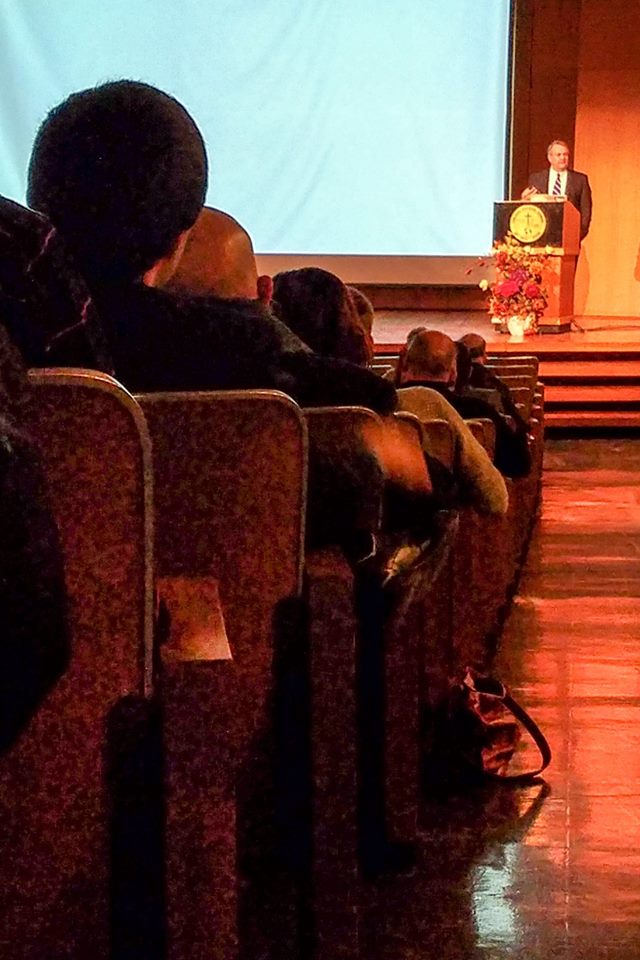 Once a quarter, President Rast holds a “Collegial Conversation” for all MDiv and Deaconess students in Sihler Auditorium. These conversations tend to contain practical advice, based in Scripture, for those anticipating a future in service to the Church and her members. Afterwards, students get together with their faculty mentors to discuss the day’s topic over lunch.
Once a quarter, President Rast holds a “Collegial Conversation” for all MDiv and Deaconess students in Sihler Auditorium. These conversations tend to contain practical advice, based in Scripture, for those anticipating a future in service to the Church and her members. Afterwards, students get together with their faculty mentors to discuss the day’s topic over lunch.
With Call Day exactly five weeks from today, this morning’s talk focused on pastoral and diakonal wisdom when serving and engaging with God’s people. “Learning to be a leader of a community joined together in confession but not always in action can be a tremendous challenge,” President Rast acknowledged. He turned to Titus chapter 1, where Paul explains that pastors “must hold firm to the trustworthy word as taught, so that he may be able to give instruction in sound doctrine and also to rebuke those who contradict it…[the defiled and unbelieving] profess to know God, but they deny him by their works. They are detestable, disobedient, unfit for any good work” (verses 9 and 16).
“But when do you become convinced they have crossed that line: ‘detestable, disobedient, unfit for any good work’?” President Rast asked. “When you recognize that YOU are detestable, disobedient, and unfit for any good work. You and I are unfit too. You will learn – I hope – to say at the end of the day: we are unworthy servants.”
Always a historian, near the end of his talk Dr. Rast included these words from C.F.W. Walther’s first speech as president of the Synod (1848):
“But where the pastor is given only the power of the Word, but its full power, where the congregation, as often as it hears Christ’s Word from the mouth of the preacher, receives it as the Word of God, there the proper relationship between pastor and congregation exists; he stands in their midst not as a hired mercenary but as an ambassador of the Most High God; not as a servant of men but as a servant of Christ, who in Christ’s stead teaches, admonishes, and reproves…
“The more a congregation sees that he who has the rule over them in the Lord desires nothing but that the congregation be subject to Christ and His Word; the more it sees that he does not desire to dominate them, yes, indeed, that he himself with a jealous eye guards the liberty of the congregation, the more willing the congregation will become to hear his salutary recommendations also in matters which God has not prescribed; it will follow him in these matters not as a taskmaster because it must, but as their father in Christ, because they wish to do it for their own advantage.”
